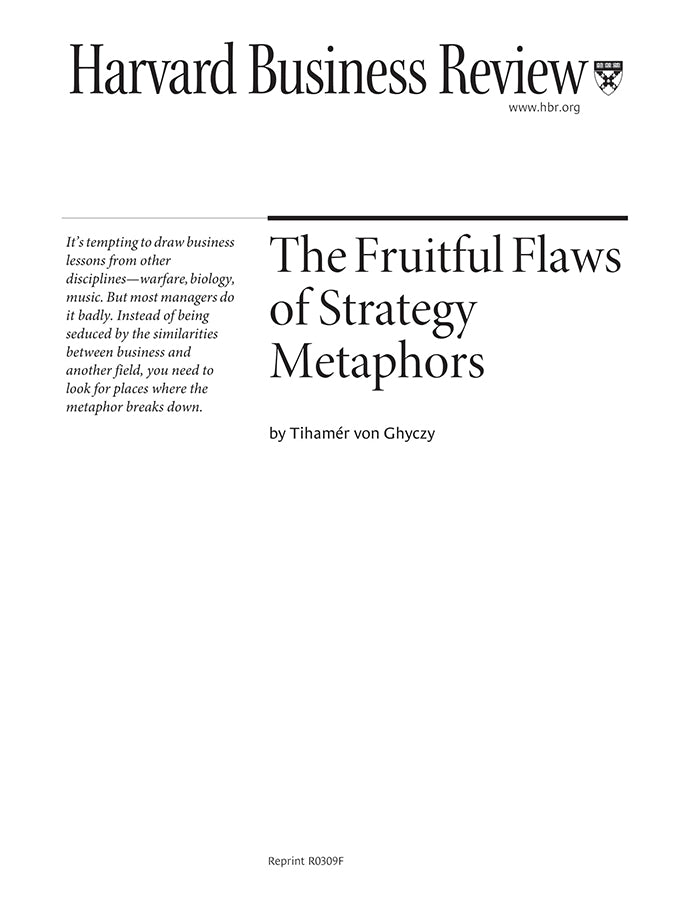Fruitful Flaws of Strategy Metaphors
受取状況を読み込めませんでした
The business world is rife with metaphors these days, as managers look to other disciplines for insights into their own challenges. And metaphors can--despite their somewhat flaky image--be powerful catalysts for generating new business strategies. But metaphors are often improperly used, their potential left unrealized. We tend to look for reassuring parallels in business metaphors instead of troubling differences, the author contends. In fact, using metaphors to come up with new strategic perspectives begins to work only when the metaphors themselves don't work, or at least don't seem to. Consider the following case. An insurance company's corporate headquarters put together a team of experts to discuss ways the firm might respond to the challenges of conducting business via the Internet. Once the team drafted a master plan, the idea was that it would be promulgated to the individual agents and offices of this widely dispersed organization. In a meeting with the company's top managers, the author talked about Charles Darwin's conceptual breakthrough in formulating the principles of evolution. As his overview of Darwin's theories about variation and natural selection gave way to questions, a heretical notion took shape: Those far-flung agents' offices, instead of being strategic liabilities in a suddenly virtual age, might instead be the mechanism for achieving an incremental but powerful corporate transformation in response to the changing business environment. But it was only when the evolutionary metaphor began to break down--when the elements of Darwin's theory clearly were at odds with the besieged insurance company's situation--that real strategic insight occurred.
【書誌情報】
ページ数:12ページ
サイズ:A4
商品番号:HBSP-R0309F
発行日:2003/9/1
登録日:2012/3/28


